Crushrite contributes experience to local project.
A second headframe is being built at Mosaic K3 that, when finished, will stand over three-hundred feet tall. The continuous-pour slip project began on August 14th is planned for roughly a few weeks. The 308-foot-tall south headframe will accompany the sky-high existing north headframe at K3.
Jonathan Robert, CEO of Crushrite Concrete and his team are tasked with creating the consistent high-grate concrete throughout the slip form pouring process.
“It is going to change the landscape,” said Jonathan. “Everybody who’s involved with this project will be able to say, for the next hundred years, ‘I helped build that’. It’s pretty neat to be involved in these types of projects.”
The project is a slip form that is being poured non-stop until the headframe is complete.
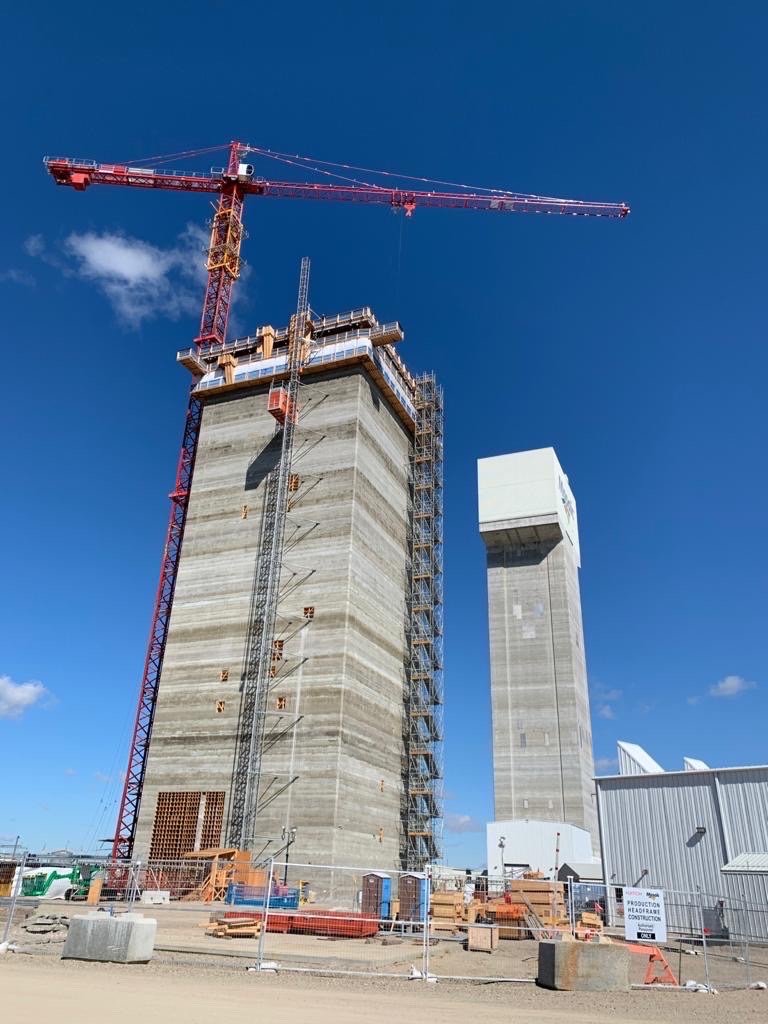
Photo credit: Mosaic
The Crushrite crew completed numerous prep batches of concrete to prepare, as well as set up contingency plans in case of there is an issue along the way.
The concrete company has completed over 90 slip form projects in its time and knows all sorts of plans are necessary when preparing for a job of this scale.
Jonathan said, “That’s how I grew up. I spent my summers going to whatever dad was doing and I would either run the loader, or just fill up the trucks and help back them in and out until I had my license.”
He added that this slip form project one is extra special as it is at home and involves the local community.
The slip form will be built in one continuous pour where a wall form is poured, then rebar is placed. As the concrete hardens, the crews will jack the form up. It is called a slip form because the form slips up the concrete.
The slip form will be built in one continuous pour where a wall form is poured, then rebar is placed. As the concrete hardens, the crews will jack the form up. It is called a slip form because the form slips up the concrete.
The crews will repeat the process for a few weeks until it reaches three-hundred and thirteen feet.
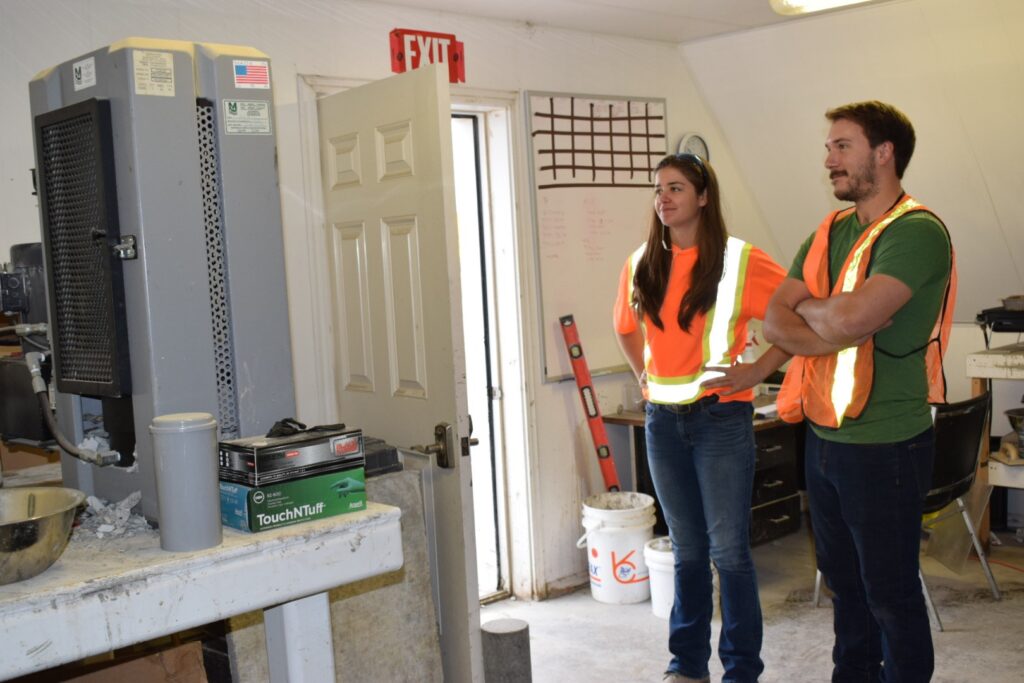
Communication and the Crew
The crew is very diverse, bringing in balanced numbers of men and women, as well as local workers and those from further away. “We looked at our talent, and found that if we could get enough operators, we figured that for every male counterpart there could be a female counterpart.”
Speaking about the preparation for this project, the CEO of Crushrite said, “We’ve done an awful lot of trials, over one-hundred and fifty meters of trial tests alone to perfect this mix so there are no surprises with it.”
They want to prepare and ensure the mix is very predictable. There were over 50 tests done on the different mixes involved to ensure predictability.
Jonathan Robert said, “A successful slip is about giving them a consistent product. They want to know what it’s going to do and we have to make it look exactly like the last load for 24 days.” Two crews will rotate to pour continually throughout the multi-week project.
The sought-after company is always looking to grow and develop. The CEO said, “This job has definitely made our company better. We’ve been asked to prepare things that we don’t typically do. The amount of planning that’s gone into this job is beyond anything I’ve seen. I’ve got every procedure for absolutely everything we do spelled out. There are plans set for everyone’s role.”
A mentor for Jonathan once said, “Clarity builds confidence and confusion builds chaos..and you cannot over-communicate what is important.” Prior to the pour, the Crushrite crew went to the build site and did a thorough dry-run of the project so there would be no errors in communication once the
pour began.
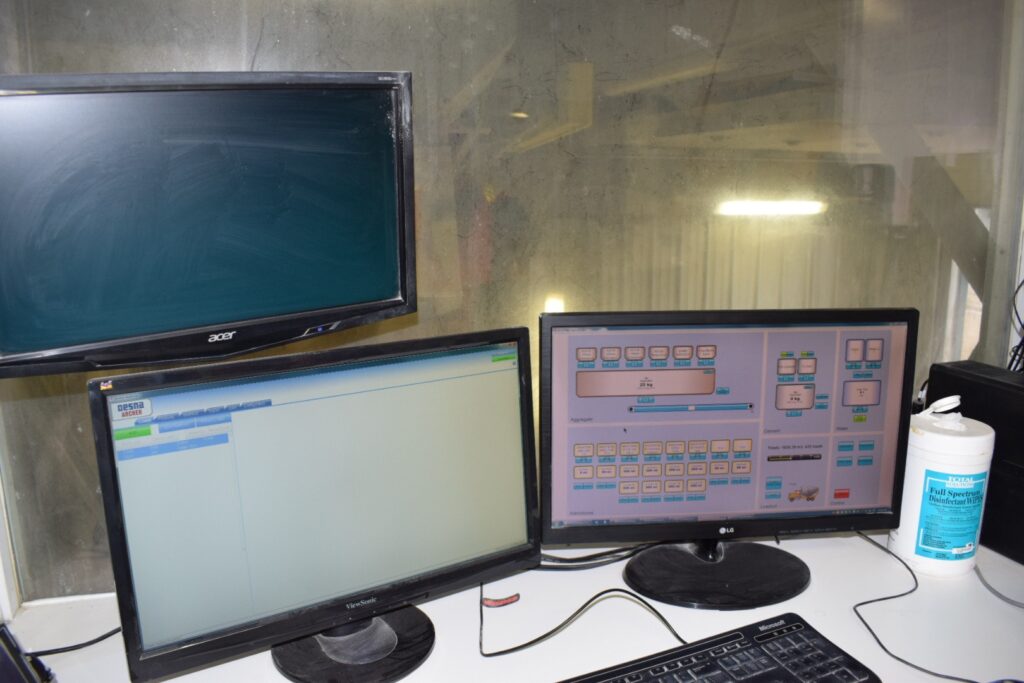
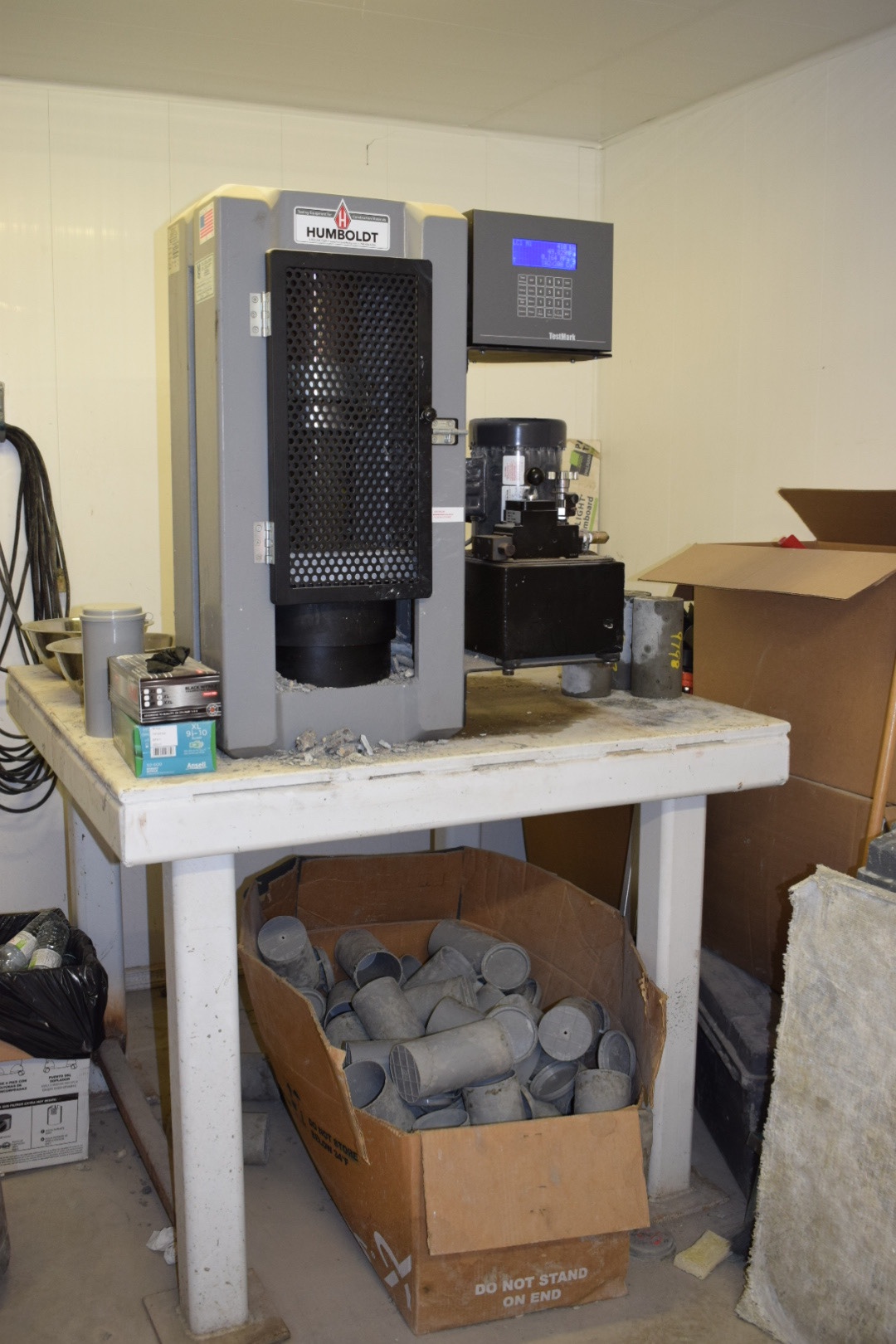
Precise Results
To test the concrete, a small cyl- inder shape amount is pressure-tested to figure out its strength. The concrete is to meet 40 MPa in 56 days, and currently Crushrite is meeting that requirement in 7 days.
Concrete is mainly composed of rock and sand, cement powder, fly ash water and chemical admix- tures. The water is held in a holding tank at the Crushrite ready-mix site where it can be measured. The aggregate and ce- mented powder are held in their own bins as well. At the touch of a button, the contents can be poured and mixed into the loading truck, with the exact composition of each load shown on Crushrite’s com- puters. “There is no guesswork. It
is very precise. We’re measuring things down to the very millimetre,” said Crushrite employee Kris Ohnander.
Corrosion is a factor at the nearby potash mine so corrosion inhibitors are included in the mix to get it as strong as possible.
After the trucks are loaded, they go to a final check point where there is a visual look once more before it goes to the site. Ohnander mentioned that some of the more experienced batch technicians are good enough to listen for how vis- cous the concrete is; they can tell how viscous the concrete is just by hearing the sound as it is poured into the truck.
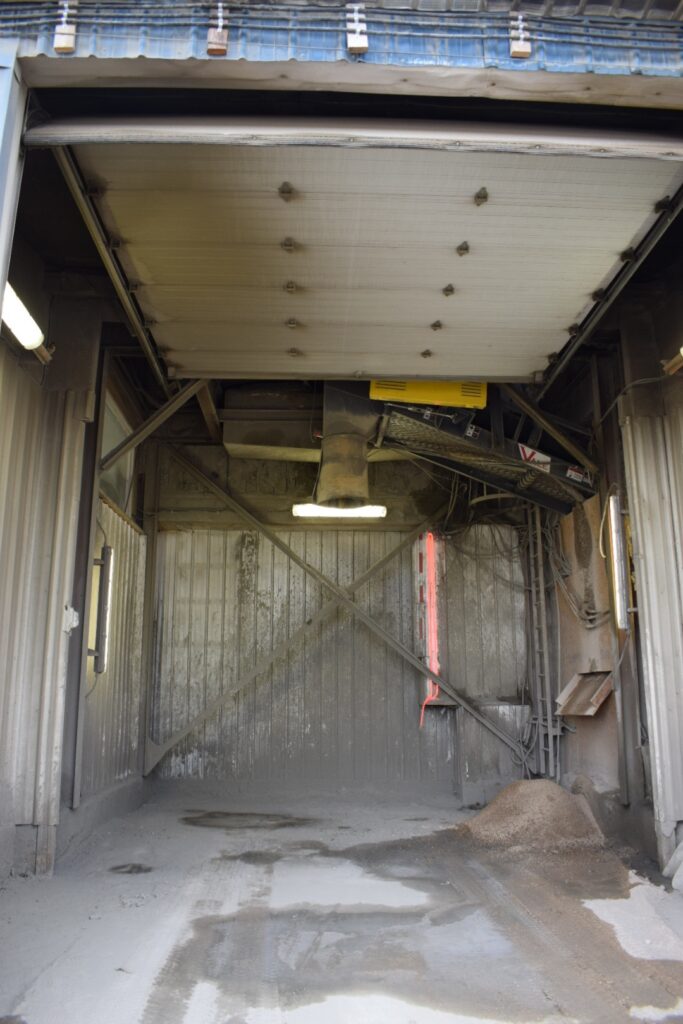
A Boom to the Local Economy
A project like this not only hires local workers, but also brings in those from out of town who rent living accommodations and end up purchasing numerous goods and services while in town. Dollars are spent which help our local businesses and this is always important, especially during current difficult financial times. An example of this, Kris Ohnander mentioned, would be how a little restaurant in Rocanville is catering to one of the crews involved for the duration of their time with the project.
The crew is very appreciative towards Mosaic who gave them a shot at the project.
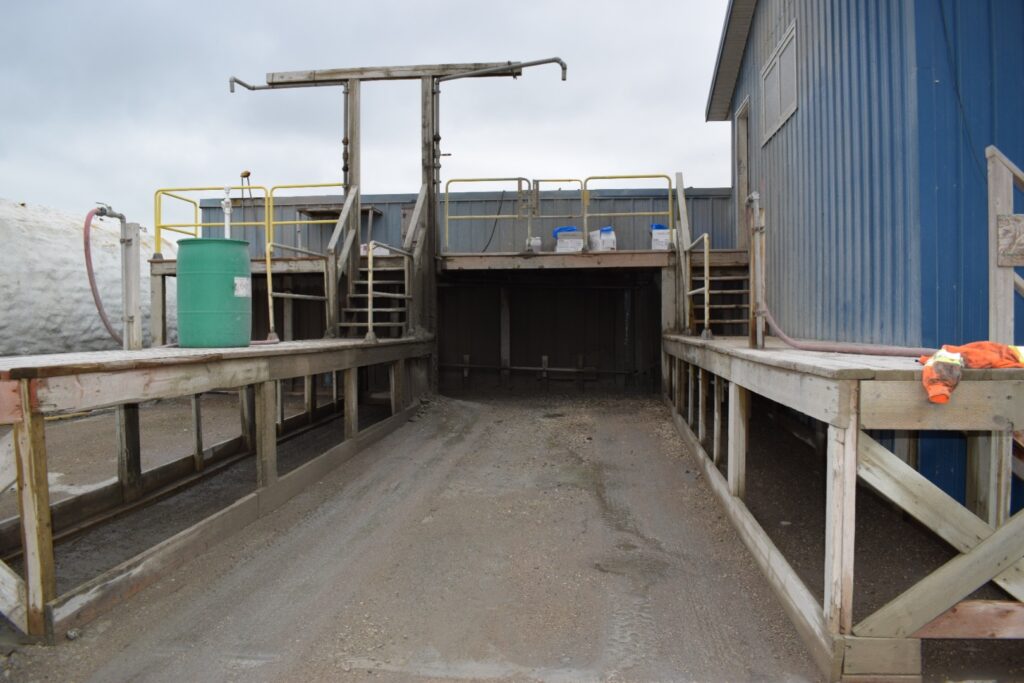
Did you know? Crushrite has committed $10,000 toward the New Pool Project in Langenburg through material and labour.
The last concrete truck for the continuous slip-form was poured at 2 P.M. on Friday, September 4th.
The elevation ended at 308’ ft.
The total number of trucks poured was 648 and took 21.5 days.
Next, a construction joint will be prepared for the top penthouse and bridge crane concrete support wall.
Information for this story contributed by Crushrite and Mosaic.